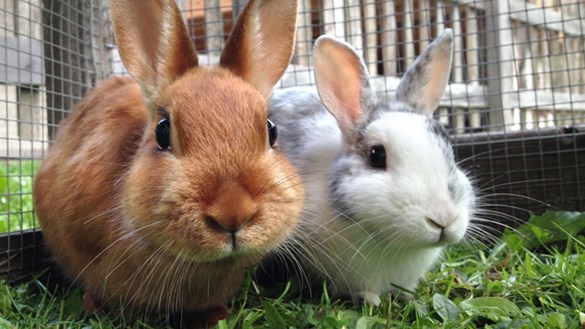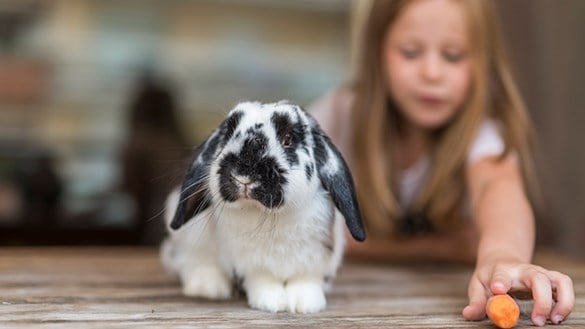The Responsible Rabbit Owner’s Guide
Owning a rabbit is a huge commitment. Refresh your knowledge of responsible rabbit ownership with our guide.
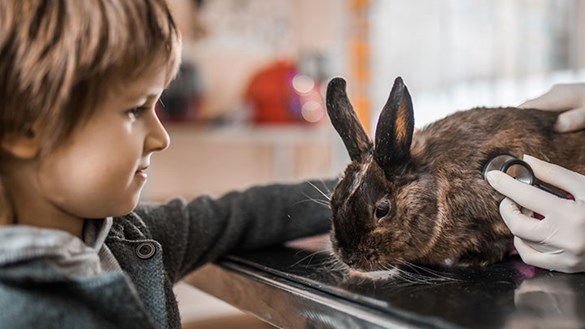
Care for your rabbit
Owning a rabbit is a huge commitment, but also incredibly rewarding. Whether you’re a first-time rabbit owner or have experience, refresh your knowledge of responsible rabbit ownership with our complete guide.
Looking after your rabbit's teeth
Dental disease is very common in rabbits and is often linked to what they eat, which is why keeping on top of their diet is really important. Poor diet and lack of fibre are the most common causes of dental disease in rabbits so making sure they have a high fibre diet is one of the best ways to maintain teeth health. Learn more about rabbit dental care.

Maintaining the right diet
Just like humans, rabbits have very specific needs when it comes to their nutrition. Choosing a high-quality, balanced diet and knowing how much they should eat is crucial in maintaining their weight, preventing further health issues and making sure their body gets all the nutrients it needs.
Read our complete guide to your rabbit’s nutritional needs to find out more.
Rabbit-proofing your home and garden
Whether they live indoors or out, rabbits can be very curious and keen to explore their environment. While they find different sights, smells and sounds highly stimulating, they’re not always aware that their inquisitive nature can land them in trouble.

Here are some ideas for rabbit-proofing your home and garden:
- Keep medications, cleaning products and other hazardous chemicals in high cupboards, well out of reach
- Use a cable tidy to clear away loose cables and wires or hide them behind furniture to prevent chewing
- Make sure you have secure fencing around your garden without any gaps a rabbit could wriggle through. Speak to your vet for advice on rabbit-proofing your garden
- Be mindful of the plants in your garden as some can be toxic to rabbits
- Fence off any ponds and water features to prevent drowning
Microchipping rabbits
Microchipping isn’t yet common in rabbits, nor is it a legal requirement, but it’s still a strongly recommended part of being a rabbit owner, particularly as they don’t wear collars.
A microchip contains a unique code that links to your pet’s rabbit’s details, including their your owner’s name, address and phone number, and means they’re instantly identifiable when scanned by a vet, rescue centre or warden. This is often the only way to return reunite lost or stolen rabbits. back to their owner.
As well as having your rabbit chipped, keeping your details up to date on the central database is crucial. Learn more about the process and the benefits in our microchipping advice.
Give them exercise
Regular exercise is important for any rabbit’s health, no matter their breed, age or size. Daily exercise in a large run will give them plenty of time to hop, jump and explore their surroundings. Placing a variety of toys, tunnels and cardboard boxes in their run will also help stimulate their mind while they exercise.
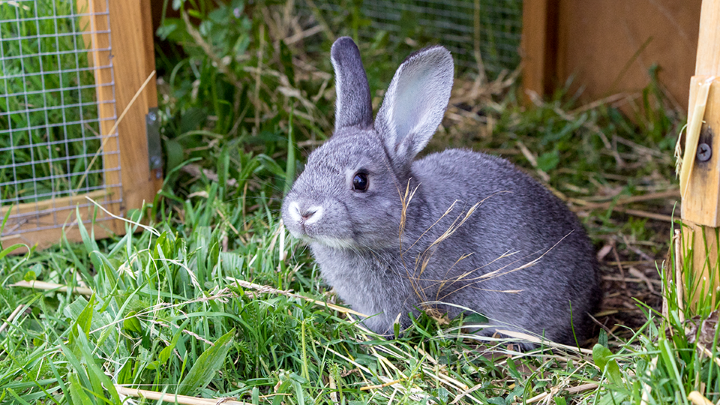
Your rabbit’s exercise needs will depend on their breed, age, and any health issues they have. Speak to your vet or nurse for their recommendations on how often to let your rabbit use their run and how long for.
Taking your rabbit to the vet
Regular trips to the vet provide many benefits for your rabbit. At every visit, your vet will give your pet rabbit a full nose-to-tail health check to look out for any signs of illness. This is also a great opportunity for you to ask questions about your pet’s their ongoing care, including their nutritional needs and weight, exercise requirements and preventative care.
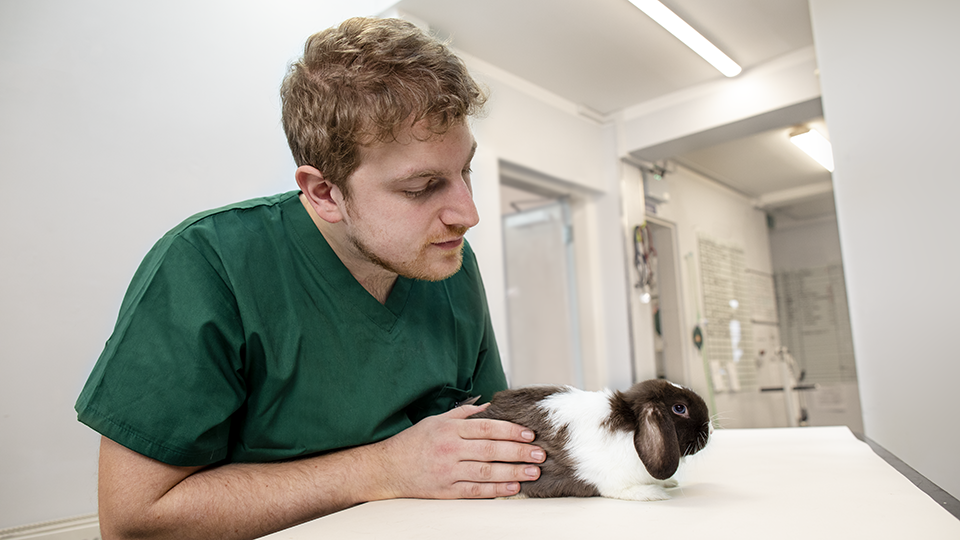
Your rabbit’s needs will change as they get older and booking routine appointments with a vet or nurse is the best way to understand how to adapt your routine. This includes booster vaccinations, dental checks, and even blood and urine tests in older rabbits, to keep them happy and healthy for years to come.
Taking your rabbit to the vet regularly will also help prevent future health issues that could affect your rabbit’s quality of life and lead to expensive vet bills. Our Medivet Healthcare Plan provides regular care such as six-month health checks in an easy, affordable way
Read some of our top reasons to visit your vet.
For more advice about being a responsible rabbit owner, contact your local Medivet practice
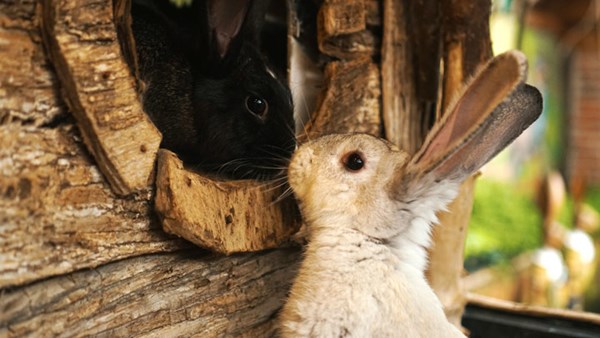
Our Healthcare Plan For Your Rabbit
With the Medivet Healthcare Plan, you can save an average of £147 each year and that’s without discounts that the plan offers on top.
Learn more


